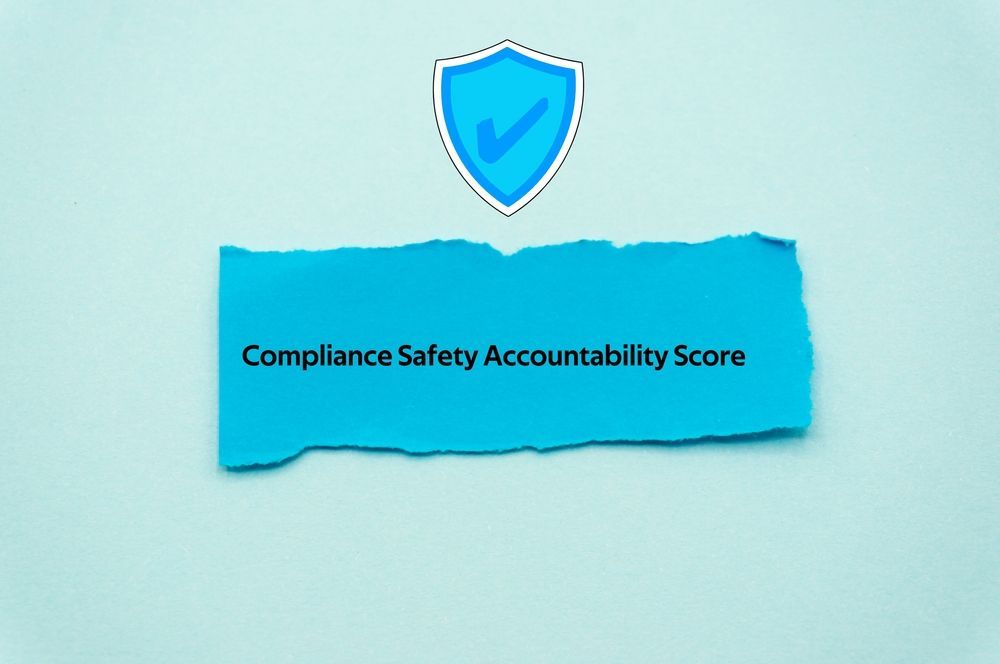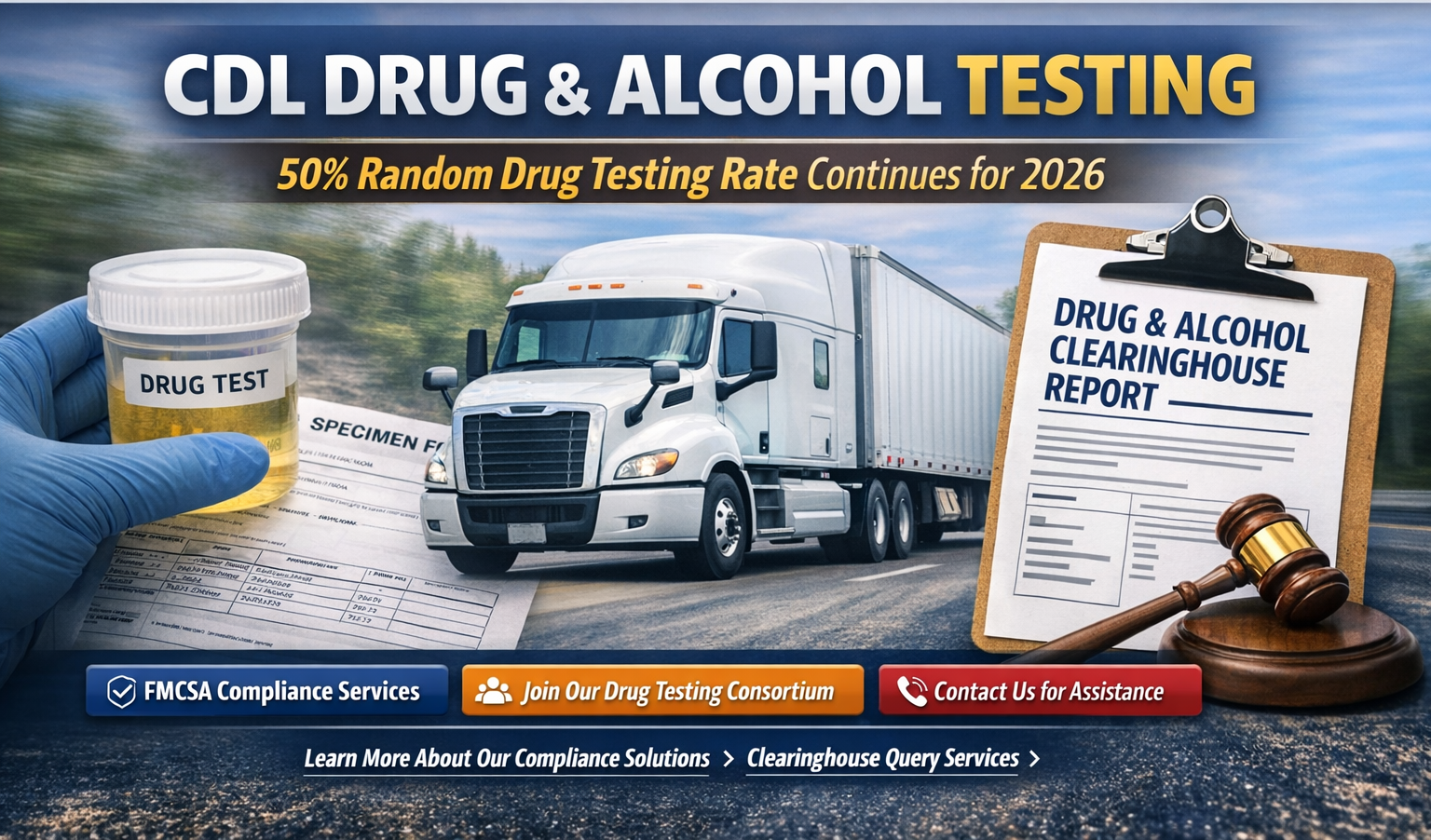What are CSA Scores?
September 29, 2025
Share this article:
Understanding the Basics of CSA Scores
For any company operating commercial motor vehicles, CSA scores directly reflect how the FMCSA views your safety performance. CSA stands for Compliance, Safety, Accountability. It’s a federal monitoring system designed to identify carriers that may pose higher risks on the road.
A CSA score isn’t a single number. It’s made up of seven category scores that measure different aspects of your company’s safety record. These categories track everything from vehicle maintenance to driver behavior. When problems show up in one area, they can pull down your score across the board.
This scoring system helps the FMCSA decide where to focus inspections, audits, and enforcement efforts. It also gives insurance companies and potential business partners a snapshot of how responsibly your fleet operates.
If you’ve been wondering what CSA is in terms of daily impact, think of it as your company’s safety reputation. Every roadside inspection, violation, or accident report feeds into that score. Letting problems build up can affect your ability to take on new contracts, keep insurance costs in check, and avoid enforcement actions.

How CSA Scores Are Calculated
CSA scores are calculated using data collected through roadside inspections, crash reports, and investigation results. Each violation is assigned a severity weight, which reflects how strongly it relates to crash risk. The more recent and serious the violation, the more it impacts your score.
Scores are grouped under seven Behavior Analysis and Safety Improvement Categories, known as BASICs. Each category is given a percentile ranking from 0 to 100. A higher percentile means poorer performance compared to similar carriers.
The FMCSA uses a rolling 24-month window for data, but newer events carry more weight. Violations in the last 6 to 12 months influence your CSA score more than older ones. Frequent or repeated violations in any BASIC category can quickly push your score into a range that triggers interventions.
Your percentile rankings are also based on fleet size and inspection volume. Smaller carriers with fewer inspections can see bigger swings in their scores from a single incident. This makes proactive
compliance and monitoring especially important for small to mid-sized fleets.
Accurate records, consistent maintenance, and well-trained drivers all feed into a stronger CSA score. The sooner issues are addressed, the easier it is to avoid long-term consequences.
The Seven BASICS Categories Explained
Each CSA score is broken down into seven categories, called the BASICs. These categories highlight specific safety behaviors that influence your risk profile. Understanding what each one tracks can help you take targeted steps to improve your overall performance.
Unsafe Driving
This category covers dangerous driving behavior. Violations include speeding, reckless driving, improper lane changes, and not wearing a seatbelt. These are some of the most heavily weighted violations due to their direct link to crash risk.
Hours of Service (HOS) Compliance
HOS violations stem from drivers exceeding allowable driving hours, not taking required breaks, or failing to maintain accurate logs. ELD data is commonly used in this category. Repeated HOS issues suggest driver fatigue, which raises red flags during audits.
Driver Fitness
This involves the qualifications of your drivers. Missing or outdated medical cards, suspended licenses, or improper endorsements can all trigger violations. Keeping your Driver Qualification (DQ) files current is key here.
Controlled Substances and Alcohol
Any violations related to drug or alcohol use, including positive tests or possession of prohibited substances, fall under this category. Random testing and proper recordkeeping play a big role in managing this risk.
Vehicle Maintenance
This category tracks violations found during inspections, such as faulty brakes, lights, tires, or other mechanical defects. Regular preventive maintenance and pre-trip inspections help prevent recurring issues.
Hazardous Materials (HM) Compliance
If your fleet hauls hazardous materials, this category applies. It covers everything from proper placarding to securement and paperwork. Even small errors here can carry heavy penalties.
Crash Indicator
Based on crash reports from the last two years, this category evaluates patterns of accidents involving your fleet. It doesn't assign fault, but it still impacts your CSA score. Fewer crashes and safer driving behavior help lower your percentile.
Each BASIC score gives a specific view of your safety performance. Addressing weaknesses in just one area can make a noticeable difference over time.
Why Your CSA Score Matters

Your CSA score influences how often your company gets inspected, how insurance providers assess risk, and how potential clients view your operation. A high score in any category can lead to more roadside stops, audit triggers, and possible enforcement actions.
It’s also one of the first things brokers and shippers look at before awarding contracts. For growing fleets, a strong CSA score builds credibility and opens up more business opportunities.
This score isn’t just for regulators. It’s a measure of how well your company manages safety, and it affects your bottom line more than many realize.
Common Factors That Hurt CSA Scores
Small missteps can lead to bigger issues in your CSA score. These are some of the most common causes:
- Vehicle maintenance problems like bad brakes, lights, or tires
- Outdated driver files, including medical cards or licenses
- HOS violations from inaccurate or missing ELD logs
- Unsafe driving behaviors such as speeding or improper lane changes
- Missed drug and alcohol tests or poor recordkeeping
- Lack of internal audits, leaving compliance gaps unchecked
- Frequent crashes, even if your drivers aren’t at fault
How to Improve and Maintain a Strong CSA Score
Improving your CSA score starts with consistency. Routine vehicle inspections, up-to-date driver files, and regular training all contribute to better scores across every BASIC category. The fewer violations you accumulate, the stronger your percentile rankings become.
Make internal
audits part of your monthly routine. Catching compliance gaps early helps prevent them from turning into violations during inspections. Review ELD logs, drug testing records, and driver credentials regularly.
Technology can also play a big role. A
fleet management platform like DOTFocused helps you stay on top of key compliance areas, track performance trends, and reduce risk across your operation.
If your CSA scores need work or you're looking for a simpler way to manage
compliance, National Fleet Services can help. Our team works directly with carriers to
reduce risk and keep fleets inspection-ready. Learn more about how DOTFocused can support your safety goals.
fleet insights






